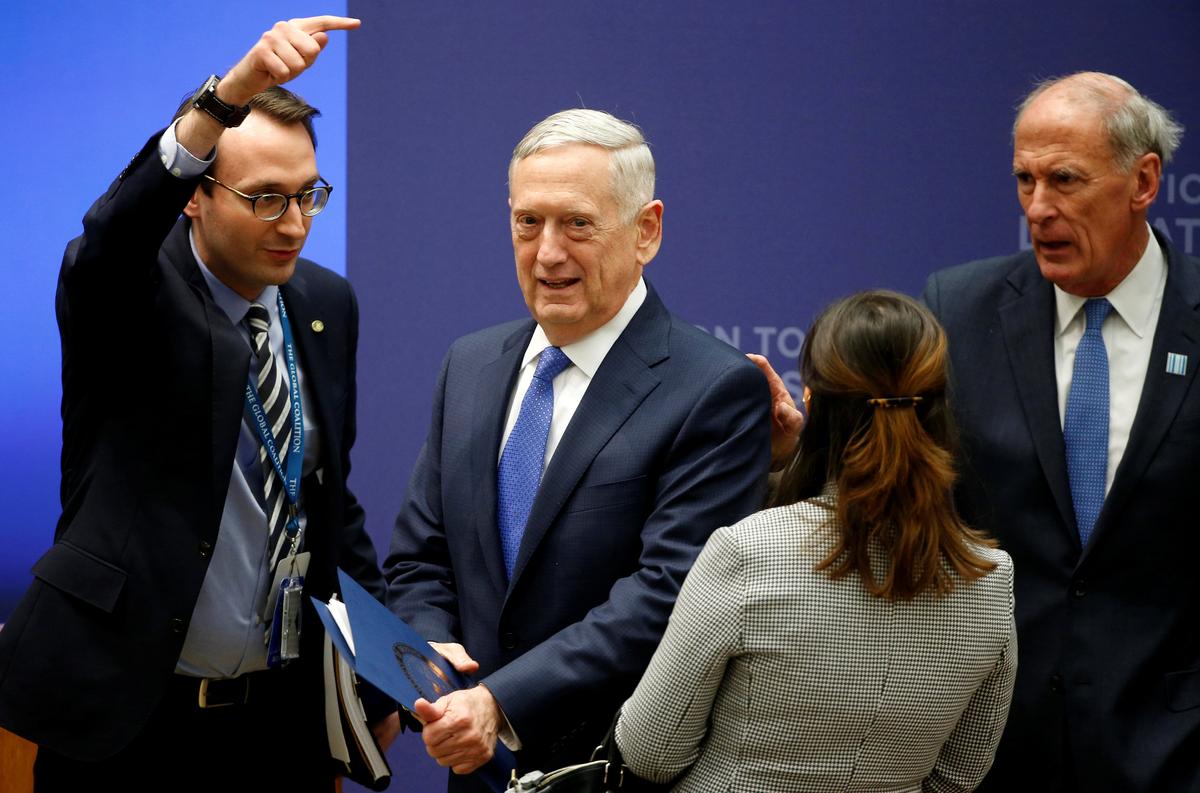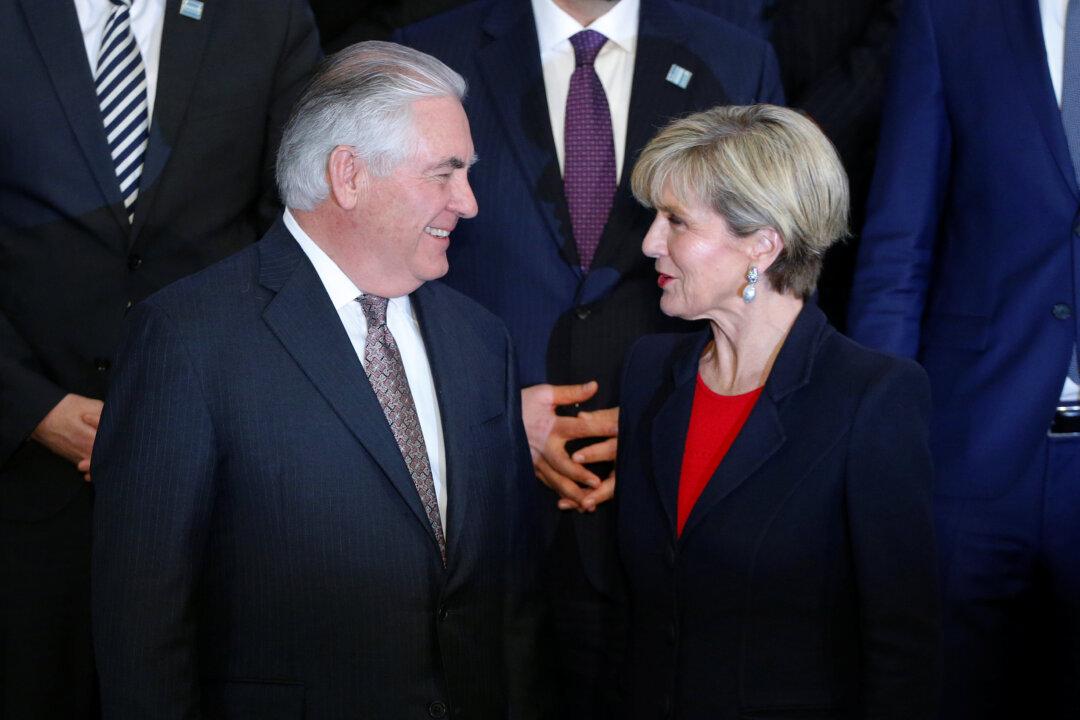WASHINGTON—Secretary of State Rex Tillerson said on Wednesday the United States would set up “interim zones of stability” to help refugees return home in the next phase of the fight against ISIS and al-Qaeda.
The top U.S. diplomat did not make clear where these zones were to be set up. He was addressing a meeting of 68 countries gathered in Washington to discuss the fight to defeat ISIS in Iraq and Syria.
“The United States will increase our pressure on ISIS and al-Qaeda and will work to establish interim zones of stability, through ceasefires, to allow refugees to return home,” Tillerson told the gathering at the State Department, where the former oil executive was hosting his first major diplomatic event.
Although it was unclear how the zones would work, creating any safe havens could ratchet up U.S. military involvement in Syria and mark a major departure from former President Barack Obama’s more cautious approach. Asked about Tillerson’s remarks, Colonel Joe Scrocca said the U.S. military had not yet received any direction to establish any kind of “zones”.
Increased U.S. or allied air power would be required if President Donald Trump chooses to enforce ‘no fly’ restrictions, and ground forces might also be needed to protect civilians in those areas.
ISIS has been losing ground in both Iraq and Syria, with three separate forces, backed by the United States, Turkey and Russia, advancing on the group’s Syrian stronghold city of Raqqa.
A Pentagon-led preliminary plan to defeat ISIS was delivered to the White House last month. It could lead to relaxing some of the former Obama administration’s policy restrictions, like limits on troop numbers.






